An easy-to-use keto calculator for your ketogenic diet. Learn how many calories, macronutrients, and carbohydrates you need to consume daily to reach the fat-burning state of ketosis.
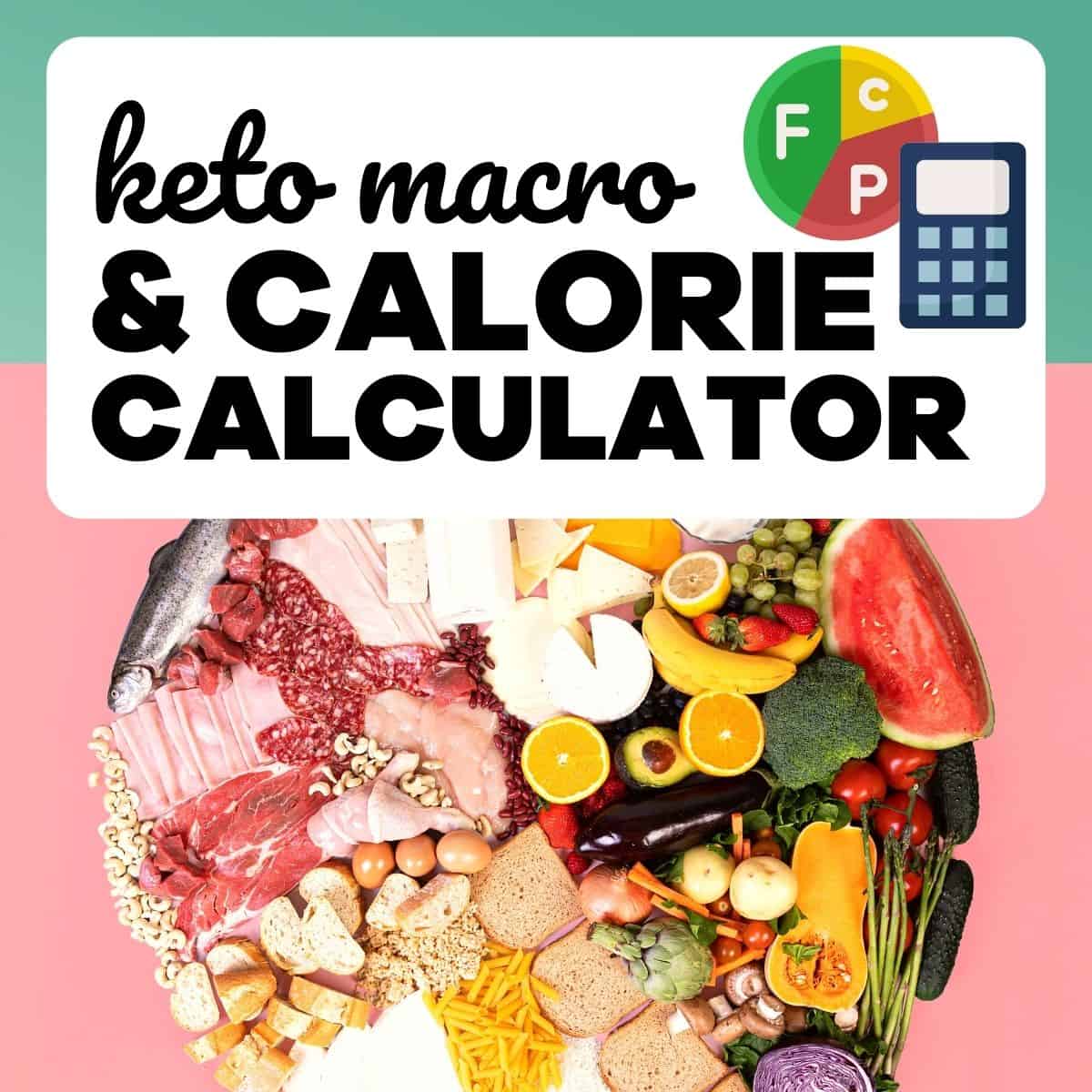
Jump to:
- Keto Calorie Calculator
- Results
- Calorie Counting: The Reputation Calories Have in Dieting
- What is a Calorie?
- The Role Calories Play in Weight-Loss Dieting
- Keto: A Weight-Loss Diet
- Calories and Weight-Loss
- 4 Ways Keto Makes a Calorie Deficit Easier
- Do You Need to Count Calories on Keto?
- Closing remarks
- Ready to start your Keto Diet?
- 💬 Reviews
As one of the most interesting emerging diets – a spin on some of the most popular diets of the 20th century – the ketogenic diet is a world of possibilities and interesting applications.
It’s a tool in a toolkit, as we’ve mentioned before, and one that has a few interesting medical and performance implications.
Today, however, we’re going to discuss keto about the king of dieting principles: the calorie deficit.
We’re going to answer all your pressing questions:
- How does keto deal with calories?
- Do you need to count calories on keto?
- What sort of ketogenic diet guidelines should you be following?
Stick with us, and you’ll have a great understanding of how keto fits into the overall map of weight-loss dieting and what an effective, well-balanced ketogenic diet will look like when thinking about the macros and calories!
Keto Calorie Calculator
Ageyears
Weightstones lbs
Heightfeet inches
Body fat%
Net carbsgrams
Specify the amount of daily net carbs you'd like to consume. Typically, 20-30 grams is recommended to start with.
Results
Maintenance
Maintenance level is the level at which your weight remains stable.
| Your BMR is: | 1536 | kcal |
| Calories to consume: | 2027 | kcal |
| Your fat intake should be: | 184 | grams |
| Net Carbs | Protein | Fat | |||
| 25 | grams | 69 | grams | 184 | grams |
| 100 | kcal | 275 | kcal | 1653 | kcal |
| 5 | % | 14 | % | 81 | % |
Goal
Below is a range of calorie deficits to help you lose weight. For best results, it is recommended that you opt for a moderate calorie deficit of 10-20%.
Small calorie deficit (11%)
| Calories to consume: | 1804 | kcal |
| Your fat intake should be: | 159 | grams |
| Net Carbs | Protein | Fat | |||
| 25 | grams | 69 | grams | 159 | grams |
| 100 | kcal | 275 | kcal | 1430 | kcal |
| 6 | % | 15 | % | 79 | % |
Moderate calorie deficit (22%)
| Calories to consume: | 1581 | kcal |
| Your fat intake should be: | 134 | grams |
| Net Carbs | Protein | Fat | |||
| 25 | grams | 69 | grams | 134 | grams |
| 100 | kcal | 275 | kcal | 1207 | kcal |
| 6 | % | 17 | % | 77 | % |
Large calorie deficit (33%)
| Calories to consume: | 1358 | kcal |
| Your fat intake should be: | 109 | grams |
| Net Carbs | Protein | Fat | |||
| 25 | grams | 69 | grams | 109 | grams |
| 100 | kcal | 275 | kcal | 984 | kcal |
| 7 | % | 20 | % | 73 | % |
Calorie Counting: The Reputation Calories Have in Dieting
Calorie counting is often discussed like it’s the worst thing in the world – like it’s a diet based on salads and starvation.
This is because calories are misunderstood and demonized: everybody wants to achieve their goal body, but nobody wants to spend all day counting their food intake.
There are pretty much two reasons that this reputation has come about:
- Being attentive to your diet is often associated with compulsive or overly-restrictive behaviors and the inevitable failure and guilt that come with
- The amount of effort and discomfort associated with being on a very strict, numerical food plan is a real psychological bummer!
So when we talk about calories, it’s going to be important to break down the difference between how a ketogenic diet deals with calories and, as a different discussion, whether or not you’ll have to count calories on a ketogenic diet.
Obviously, this means starting with a discussion of what a calorie is and how it plays into your diet…
What is a Calorie?
Calories are just a measure of the energy found in food. As a scientific concept, it is the energy necessary to raise the temperature of 1 gram of water by 1 degree.
If you’re super knowledgeable on energy, it's also just over 4 joules. This isn’t that important. What is important is what it means to you in a practical sense.
A calorie is a unit of energy that food provides – but calories are not good or bad. They become bad when you have too many and good when you need more.
A calorie surplus is how you become obese, but it’s also how you become incredibly muscular. This is because the energy itself doesn’t code for fat or muscle – your body decides what to do with it based on your lifestyle: your diet, training, sleep, supplementation, hydration, and so on.
So when we look at calories, it’s important to remember that they’re just energy.
If you have an excess of energy, your body will either store it as fat to be used later or use this additional energy to repair and grow tissues like muscle.
On the other hand, calorie deficits are key to weight-loss dieting.
The simple principle is that your body lacks energy when you consume fewer calories than you use. During this time, your body burns that stored body fat to make up the difference and ensure you get all the energy you need for exercise and other activities.
This is how dieting works – something we need to discuss a little more in-depth.
The Role Calories Play in Weight-Loss Dieting
Creating a calorie deficit between your food/drink and your activity levels is entirely the point of any weight-loss diet.
While there are many differences between popular diets – some more-effective and some less so – the general idea is to create a sustainable deficit for long enough that you burn away excess body fat as fuel.
This is also why diet is essential for weight loss, while exercise is only considered beneficial. You can create a calorie deficit by simply eating less, while exercise and other forms of activity can increase this deficit by upping your overall calorie needs.
This balance between reducing food and increasing exercise is going to be a personal preference, but the way that your calorie balance is important. This is why we describe weight-loss diets in the “calories-in, calories-out” model:
Weight Change = Calories In – Calories Out
This isn’t all there is to weight loss – dozens of dietary factors will maximize your results and health – but it’s the bedrock.
You could lose weight just by eating fewer calories, but the diets that do this (IIFYM and “flexible” dieting) tend to overlook key areas of dietary quality!
However, this is the launching-off point for what keto is, how it plays within these rules, and how it provides a unique way of dealing with your calorie intake/weight loss.
Keto: A Weight-Loss Diet
The ketogenic diet is a weight-loss diet. While many people think you can gain muscle on keto, the reality is that it doesn’t work for that purpose very well.
With protein limitations, carb reductions, and a preference for endurance performance over strength and power, it’s a diet that aims to boost your fat-loss potential rather than balance it off against strength and muscle results.
This is even more obvious when looking at nutritional ketosis and how it works. The keto-adaptation process is only effective at the top level when combined with calorie maintenance (TDEE) or a calorie deficit.
Keto adaptation happens when you’re utilizing body fat as a fuel source because your external fuel sources – especially carbs – are restricted.
This means that the weight-loss process and an optimal ketogenic diet just can’t be separated: they’re tied together fundamentally. We have to discuss weight loss and calories rather than just keto and calories.
You can use keto to gain weight/muscle if you want. It’s far less effective than other forms of diet for that purpose.
Calories and Weight-Loss
We mentioned above how the calorie works. There are two myths/attitudes we want to get rid of right off the bat because they complicate the issue of the ketogenic diet and what it has to do with calories.
The first myth is that keto is a magical fat-burning diet. This is from the people who think that carbs make you fat and that cutting them out is a simple way to fix everything about your body and health.
Despite support from ‘gurus’ who claim that insulin is the only thing that matters – or carbs are the devil – this isn’t true. The body’s response to diets of any kind – whether high or low carb – is to lose weight when put at a deficit.
As a society, we eat too many (refined) carbohydrates, but that’s not how you get fat.
The second myth is that all calorie-deficit diets are created equal.
This is a backlash to the first problem: people claiming that the ketogenic diet and its results are identical to any other diet that aims to reduce body fat.
Suggesting that LCHF and LFHC diets will have the same benefits and outcomes at all times is just as ridiculous as saying that there’s only one way to lose fat.
The reality of both myths is that you can lose weight with any deficit diet, but the best choice for your goals is more complicated.
It’s a complicated relationship between what different macro-nutrients do in the body and what you want your diet to do for you.
4 Ways Keto Makes a Calorie Deficit Easier
There are a few ways that Keto can make the weight loss process easier by simply making it easier for you to hold a calorie deficit.
1. You Like Fats
The first and most powerful reason is that it fits you better.
For some people, this is just as simple as preferring high-fat foods to carbohydrates and sustaining a lean diet easily when eating salmon, avocado, coconut oil, and other stereotypically “keto foods.”
An LCHF diet is a great choice if you love those fatty foods but you’re not so bothered about carbs – if you can cut carbs out and not feel too much impact, you’re going to do great on a keto diet.
Sticking with your diet is the #1 factor in long-term weight loss, so prioritize it.
2. You Like Endurance Training
Endurance training and keto are a perfect combination: they improve each other in a way that allows you to progress rapidly in both areas.
Ketogenic diets provide a great fuel source for endurance training.
Relying on carbs for energy is a struggle for endurance training since you will run out early into your training, and performance will drop accordingly.
However, body fat provides hundreds of thousands of calories of energy without the need to eat.
Once you’re keto-adapted, you can make huge changes to your performance and when you start to experience extreme fatigue-related losses.
On the other hand, endurance training boosts ketogenic diet performance by rapidly accelerating your ability to oxidize fats.
This, in turn, boosts efficiency in burning fats as fuels and pushes you towards nutritional and exercise-induced ketosis, as well as faster keto-adaptation.
So, if you’re looking to perform at your best in endurance training – or you enjoy it more than heavy weights or intense gymnastics – the ketogenic diet will be a great way to open up that calorie deficit.
3. You Have a Carb/Snacking Problem
This is the opposite of the “you like fats” reason: you depend on carbohydrates unhealthily.
If you’re the kind of person that struggles with compulsive or stress-related eating of carbohydrates, then the keto diet is a great way to address some behavioral concerns.
If you eat well during your meals but find yourself snacking on refined carbs like candy bars and sugary junk, keto can help you.
Improving your habits by cutting out carbs entirely and reducing your long-term cravings for carbs may be a great way of changing your dietary habits for life.
This can cut out any silly calorie slip-ups and ensure that you stick with effective rules whenever you return to intuitive or more-liberal eating practices.
4. Satiety and Fullness
The final benefit we’ll discuss is how a well-balanced and well-planned ketogenic diet improves satiety and reduces overall cravings/hunger.
This isn’t part of a traditional ketogenic diet, but with a single addition, you can easily improve the whole keto experience and make weight loss easier.
The key to this is high food volume.
This means that your non-protein, non-fat foods should be focused on increased volume.
This is the sheer size and amount of food you’re eating for the same amount of calories.
Everyone seems to love avocados nowadays, but they’re not the best for controlling calorie intake since a very small amount of food provides a relatively huge amount of calories.
On the other hand, broccoli, carrots, and other fibrous vegetables provide a large amount of volume for almost no calories.
Combining the high-fat, moderate-protein ketogenic diet with a large amount of food volume for your remaining carbohydrates and veggies is a crucial way to make the most of the ketogenic diet. This can make a calorie deficit incredibly easy.
Do You Need to Count Calories on Keto?
For most people, these are the big questions surrounding keto and calories.
Do you care that you have to be under your maintenance calories if you never have to count them and keep happening to be under?
Most of us don’t mind this – it’s the act of counting calories and restricting them that concerns most people.
Step One: Are you Losing Weight?
The answer to the calorie-tracking question isn’t very simple.
The first answer – and the simplest – is “probably not.”
The ketogenic diet reduces your overall calorie intake by cutting out some of the most common calorie-dense foods like sugary junk and refined carbs, making it easier to keep your weight under control.
However, this will only be the case if you lose weight.
If you’re on a ketogenic diet and you’re not losing weight – or you’re gaining weight – then you’re doing something wrong, and you’re going to need to count calories.
This isn’t surprising: the high-fat diet approach can be problematic because fats provide 250% as much energy (calories) per gram as carbs or protein.
This means you can over-eat on a keto diet, especially if you’re eating foods like bacon and avocado or consuming enough fibrous veggies.
Step Two: Do you Know How Much to Eat?
Whatever your approach to the ketogenic diet, it’s going t be important to have a good idea of how much you can eat in a single day without gaining weight or over-shooting your calories.
For this reason, our advice is to start counting calories once every 4 weeks on any given diet – or if you start to stall your weight loss.
This allows you to check your estimations of how much you should eat against the scale and the calorie count.
This also allows you to better understand your staple foods' calorie/macronutrient content.
This can be surprising, and after more than a month without tracking, it can be easy to overlook your calorie intake creeping up – a concern on any weight-loss diet.
This practice is great for better awareness of your food and can avoid serious problems associated with stalling on a weight-loss diet.
If you’re consistently plateauing with your progress, there’s something wrong with how your diet is set up or how you stick with it.
Calorie counting makes sure you’re not doing anything wrong.
You Have Specific Weight-Loss Goals
This one is a concern for anyone who is losing weight for medical reasons or to compete in a weight-class sport.
It might also be for you if you aim for a specific milestone-based goal.
We don’t recommend worrying about a specific number if you’re trying to lose weight for a better life/confidence, but if you’re going to do it, then calories are a useful tool.
You may lose weight without counting on a ketogenic diet, but if you’re trying to make a certain body weight on a certain date – or lose weight at a consistent speed – you’ll want to count calories.
A pound of fat is roughly 3,500 calories, so understanding your daily intake, deficit, and time frame can all be useful for making weight.
Setting yourself a daily deficit of 500 calories on any diet can give you a semi-reliable 1lb/week weight loss – something that would be very hard to achieve without calorie estimates.
You’re Not Going to Be Using Keto Forever
This is one of the situations where Keto might be a good choice, but you don’t plan on sticking with a ketogenic diet forever.
This would require a ketogenic diet that provides a framework for dieting without cutting carbs.
This is typically what you’ll see if you’re looking to lose weight rapidly with a ketogenic diet and then gain weight as muscle mass in the future – a common approach.
For this dieting pattern, you will need to know how to count calories and how many calories a given meal or food provides.
This will be the case for anyone who is not an endurance athlete looking to improve their physique or strength and cut body fat in the short term.
Closing remarks
The ketogenic diet cannot get past the basic science of human energy storage/use: it has to conform to the basics of how calories play into your diet.
Without this key piece, it will be impossible to lose weight, even with the benefits of fat oxidation and endurance performance that the keto diet can bring.
However, from a logistical standpoint, the keto diet does many great things to reduce how much you feel the presence of calories in your life.
Calorie counting may not be a problem if you naturally tend to stick with a good surplus when eating an LCHF diet. You can increase the deficit with endurance training or remove problem carbs from your diet.
Overall, there may be some need to count calories on a ketogenic diet, but only to avoid problems.
It isn’t a necessary part of the diet until something goes wrong or you stall – we recommend taking this approach on a week-by-week basis rather than rushing to or away from calorie counting.
Ready to start your Keto Diet?
It’s as easy as 1-2-3
- Go Here
- Spend 45 seconds telling them a little bit about yourself and your goals.
- Get your custom plan and review it right away!
It’s really that simple.
But what makes this plan so easy to follow is that literally everything is done for you.
They tell you exactly what to eat and when. They give you the grocery list, the recipes, and even videos showing you how to make all the delicious food!
It doesn’t get easier than this.
So go right now and claim your custom plan while it’s still available!

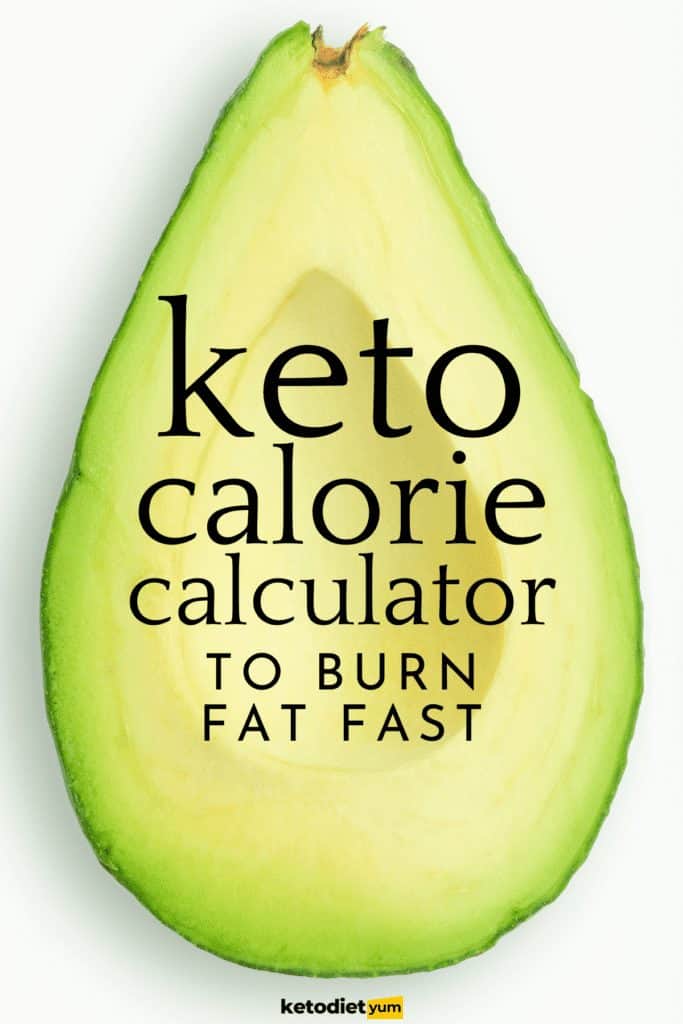
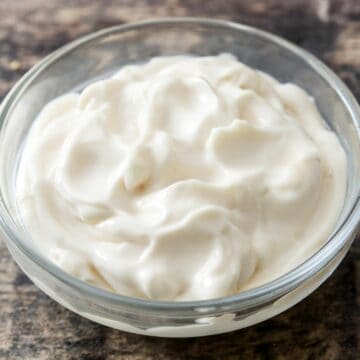
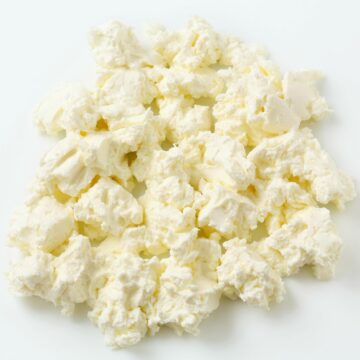

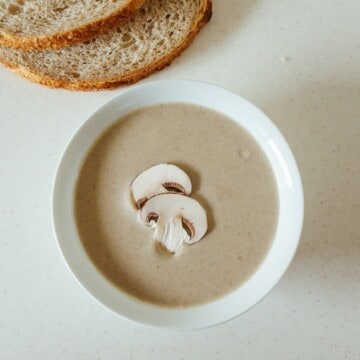
This was one of the easiest and most useful explanations of the Keto diet I've ever read. Thank you!
Thank you so much, Silva, glad you enjoyed it 🙂
Thank you for the thorough understanding of this diet.
No problem Katherine, thank you for the support!
Hi Jennifer I agreed with Silva is the most easiest and useful explanation about Keto Diet. I started yeat ago and then didn't saw fast result, knowing everyone body is different. Never get into Ketosis. I'm diabetic I really want to leave pills. You feel energetic and focus. I love it. I'm planning start again. !
Hi Thaimara, I'm so glad you enjoyed our articles 🙂 I wish you nothing but the best on your Keto journey!
Very informative, helpful and exciting info for keto beginners like myself. Thank you!
Thanks, Judy 🙂
Thank you soo much for the information. Not only was it easy to read and understand, it was FREE!! Continuously, each and every time I do a engine search on this topic I am always asked for a credit card #. THANK YOU AGAIN!!!
I am yet to embark on the journey of keto diet... found this article is very informative, practical to apply and provide a clear view on how to adopt the keto diet as a beginner. Bravo! Well done.
Great article, easy to understand. Thank you
I agree with the other comments. Your explanation is easy to understand the Keto way of eating.
This information is very helpful, I’m a beginner, but very excited.
Hi Jennifer. I really love your explanation of Keto.
Very inspiring and easy to understand. I look forward to being part of the team. Thanks for making the journey exciting to look forward to.
Felicity
This is the best article I’ve read about keto. I’ve been half-a$$ing the ketogenic diet for quite a while now and getting nowhere. I definitely overeat and subject to stress eating. The calorie explanations are super helpful. I have done it well in the past, with increased exercise, and realized how my thoughts are more clear. I handle stress better. I don’t have cravings. Thank you for all of the articles and tips. I will definitely be more mindful going forward as to not slip up.
Your keto is very informative and I think easier to follow going to try hard thankyou
I’ve tried to many keto apps and all are a waste of time and money, I absolutely love your daily emails and your recipient you make keto so easy and your recipes is out of this world.
Great easy read thank you
Jennifer, your article is easy to understand, I have been doing the Intermittent fasting approximately 2 months & watching my carb intake. In the 2 months I have lost 16 lbs. The part of your article about falling off of what I am to eat or not eat is true.If I eat something I shouldn't eat then I gain a lb. or 2.I have no one to blame but myself. So this week I have put my foot down & am going to be conscious of what I fix or put in my mouth. I have 40 lbs I want to get off before Sept. 10 for my granddaughters wedding.
Thank you so much for the information and how it was presented! I have a question concerning supplements, are they necessary in order to lose weight on the Ketosis Diet?
Hi Carolyn!
Good question. Supplements aren't required to lose weight on keto. However, they can help when starting, especially with side effects.
Here's our article on the best keto supplements if you'd like to read it.
I hope that helps!
Jennifer.
Thank you for the "layman's" terms of the Keto Diet. I have been on it once before and lost 30 lbs then hit the brick wall. I have tried other diets since and nothing has worked better than Keto. I am going back to it. After reading I have learned some new things that I haven't tried before. Thank you again for the new "look" on Keto strategies and outcomes!
thanks! very helpful
This page really has all the information I wanted about this subject and didn’t know who to ask.